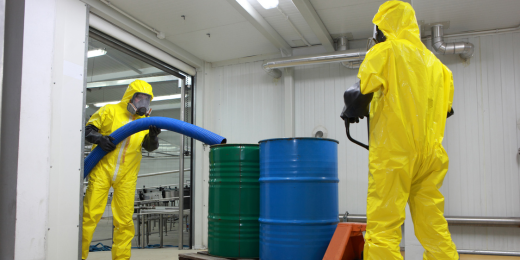An Unbiased View of Reclaim Waste
An Unbiased View of Reclaim Waste
Blog Article
The Reclaim Waste PDFs
Table of ContentsReclaim Waste Can Be Fun For EveryoneMore About Reclaim Waste7 Easy Facts About Reclaim Waste ExplainedSome Of Reclaim WasteUnknown Facts About Reclaim Waste
Explore the types, events, and forms of liquid waste. Domestic sewage waste refers to the waste and items from a household septic storage tank. This kind of waste is developed by people in homes, schools, and various other buildings. This only consists of septic storage tanks that have a drain area. The proper monitoring and disposal of residential sewer waste require liquid waste to be moved to a sewer treatment plant where the proper approaches and equipment are put on purify and dispose of waste.
Commercial waste typically includes prospective dangers, such as flammable materials or a combination of fluid and solid waste products, and calls for an advanced and comprehensive disposal procedure. The disposal of commercial waste normally entails the filtration of waste prior to transport to ensure risk-free and correct disposal. Industrial waste is developed from results and runoff of industrial processes and manufacturing.
This sort of waste can not use the exact same sewage administration transport or procedures as septic or business liquids. The hazardous waste monitoring procedure calls for the evaluation and screening of fluid waste prior to it undertakes the disposal process (liquid waste removal). Drainage waste is the fluid waste that originates from drainage and excess stormwater in very booming locations or cities
Drainage waste can create contamination and flooding otherwise handled effectively. Find out more regarding drain cleaning and waste monitoring. Guaranteeing appropriate waste administration can stop disasters and minimize environmental injury. Both people in property setups and professionals in industrial or production markets can benefit from understanding the processes and regulations of liquid waste monitoring.
Some Known Questions About Reclaim Waste.
Call PROS Solutions today to learn more about our waste monitoring and disposal services and the correct ways to look after the liquid waste you create.
(https://www.openstreetmap.org/user/reclaimwaste1)Do you recognize what occurs to your water when you pull the plug, flush the toilet or drain pipes the washing machine? No? Well, it deserves understanding. This supposed 'wastewater' is not only an important source however, after therapy, will certainly be released to our land, waterways or the ocean. Used water from commodes, showers, baths, kitchen sinks, laundries and commercial processes is understood as wastewater.

water used to cool down machinery or tidy plant and equipment). Stormwater, a form of wastewater, is overflow that moves from farming and city locations such as roofing systems, parks, gardens, roadways, courses and gutters right into stormwater drains pipes, after rainfall. Stormwater moves without treatment straight to local creeks or rivers, ultimately getting to the sea.
The Buzz on Reclaim Waste
In Queensland, many wastewater is treated at sewage treatment plants. Wastewater is moved from residential or industrial websites via a system of sewage systems and pump terminals, called sewage reticulation, to click this a sewer treatment plant. Neighborhood governments develop, preserve and run most sewage therapy plants. Operators are accredited under the Environmental Management Act 1994 to discharge treated wastewater at an acceptable environmental requirement into waterways.
The Division of Natural Resources suggests regional governments about managing, operating and preserving sewage systems and therapy plants. In unsewered areas, city governments may call for homeowners to install private or house sewer treatment systems to deal with residential wastewater from toilets, kitchens, restrooms and washings. The Department of Natural Resources authorises the use of house systems when they are confirmed to be effective.
In some brand-new neighborhoods, therapy of some stormwater to get rid of litter, sand and crushed rock has actually started making use of gross pollutant catches. Wastewater therapy occurs in four stages: Gets rid of solid issue.
Uses little living microorganisms recognizes as micro-organisms to break down and eliminate continuing to be dissolved wastes and fine fragments. Micro-organisms and wastes are integrated in the sludge.
Reclaim Waste - Questions
Nutrient elimination is not readily available at all sewer treatment plants due to the fact that it calls for pricey specialized equipment. Clear liquid effluent produced after therapy may still consist of disease-causing micro-organisms - industrial wastewater treatment.

This normally implies wastewater needs to be dealt with or contaminants removed prior to it can be discharged to waterways. Most wastewater moves right into the sewerage system. Under the Act, city governments administer approvals and permits for ecologically relevant activities (ERAs) entailing wastewater launches that could have a regional effect. The division provides authorizations and licences to ERAs including wastewater launches that might have a regional or statewide influence.
Some Known Details About Reclaim Waste
Otherwise, samples are taken for research laboratory analysis. Commonly several tests are needed to establish the degrees of each of the various pollutants such as oils, heavy metals and pesticides in water. Surveillance provides factual information regarding water high quality and can validate that licence conditions are being fulfilled. The info obtained through monitoring supplies the basis for making water top quality choices.
Report this page